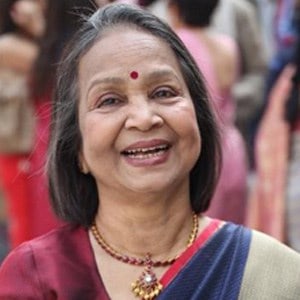
If West Bengal chief minister Mamata Banerjee does not leave any opportunity to settle political scores with Prime minister Narendra Modi, nor does the Centre ( BJP) with Banerjee. Last week, to show her annoyance, she opted out of the meeting to review the cyclone havoc in the state. In a rare violation of the protocol, Banerjee also kept the PM waiting for 30 minutes, met him briefly, and left even while the deliberations and damage assessment was on. The BJP chief minister Shivraj Singh Chouhan and some central ministers like Rajnath Singh criticized Mamata for playing petty politics.
One can understand the bitterness between the political parties during the elections. After a landslide victory in Bengal, the campaign heat has not come down even as the post-poll violence and the vendetta politics continues from both sides. After the election results in West Bengal, the CBI arrested four Trinamool leaders. Eyebrows are raised when the Centre has called back last week the Chief Secretary when he has just one month to retire.
Mamata has been complaining about the way Modi has been treating non-Congress chief ministers in Covid review meetings. “We feel insulted and humiliated. A dictatorship is going on. The Prime Minister is feeling so insecure that he did not even listen to the chief ministers. What is this fear about?” Mamata Banerjee asked.
Going down the memory lane, the Nehru era did not witness such behavior as most Congress chief ministers ruled the states. Their relationships were cordial. Prime Minister Nehru regularly kept in touch with the chief ministers to inform them of his current affairs.
Nehru’s successor Lal Bahadur Shastri ruled for a brief period and had to face a Pakistan war as well as other problems. The jolt for the congress came from its humiliating defeat in the 1967 polls. After Indira Gandhi succeeded Shastri, the number of non- Congress chief ministers also began to grow.
Tamil Nadu was one example where the chief minister Karunanidhi confronted Mrs Gandhi combining with non -Congress chief ministers. Karunanidhi did not have good relations with Prime Minister Chandrashekhar also.
The chief minister and AIADMK founder M. G. Ramachandran followed a dictum of being on the right side of the Centre even during the Morarji Desai government. He had a comfortable relationship with Mrs Gandhi.
His disciple Jayalalithaa had a cordial relationship with both Indira Gandhi and Rajiv Gandhi but she confronted P.V. Narasimha Rao and the first BJP Prime Minister Atal Bihari Vajpayee. She even pulled down Vajpayee’s government in 1998 though she was an ally of the NDA. Jayalalitha also broke the protocol by not seeing off Vajpayee in 1999 when he visited Tamil Nadu. She deliberately went out of Chennai.
During P.V. Narasimha Rao’s time, she was annoyed for appointing Dr Chenna Reddy as Tamil Nadu governor. There was a war of words between the two egoistic leaders. She demanded the recall of the governor but Rao did not agree.
Andhra Pradesh chief minister N.T. Rama Rao had a public spat with Indira Gandhi and paraded his MLAs before the president in 1984 when she got his government dismissed in1984 and she was forced to reinstate him.
Modi too is not comfortable with non -BJP chief ministers. Just last month Prime Minister objected to Delhi chief minister Kejriwal showing a live Covid review meeting between him and the chief minister. Chiding him, Modi said “Let me say this is strictly against our tradition, our protocol. “
Bad vibes between some chief ministers and governors are also not something new. West Bengal, Maharashtra, Puducherry and Delhi are shining examples where the chief ministers and the governors have a running battle.
Modi had been talking about cooperative federalism and competitive federalism as well as “Team India”. Cooperative federalism is a concept which reflects the relationship between the Centre and the states where both come together and resolve the common problems.
Modi was successful last year when he took the chief ministers on board to implement his Covid strategy. But in 2021, with elections to five states, politics took over. Non- BJP states have complained about the scarcity of oxygen and vaccination shortage and some like the Delhi government have even gone to court.
Unfortunately, confrontation has replaced consensus with the growing number of regional satraps. Modi knows that his real challenge comes from the regional satraps.
Politics has trumped economics in India’s story of cooperative federalism. With killer Covid at large, this is the time for the centre and states to work together. For this political parties need to rise above their electoral mindsets and work together. This is no time for ego and playing politics.
Kalyani Shankar is a senior journalist and analyst based in New Delhi.

